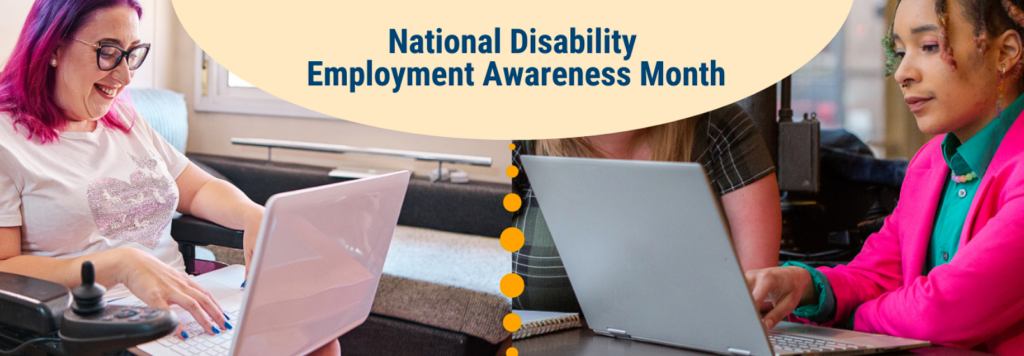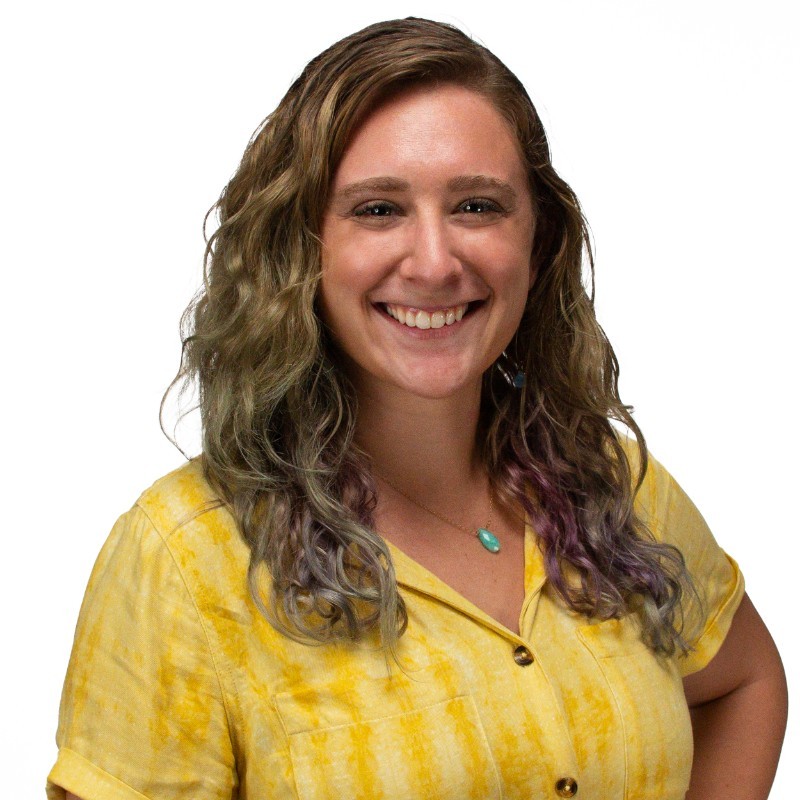Lights, Camera, Access: Employment in Media for People with Disabilities
by Beth
Editor’s Note: In a previous blog, Allison Friedman shared her perspectives about the educational system from the disability community. She also shared some of her own experiences addressing common barriers that people within the Deaf community might face when it comes to education. Today’s blog focuses more on Allison’s interest in creative arts and some of her experiences regarding employment in the media industry for people with disabilities.
Can you tell us a little more about your background?
Allison: I’m a professor and a disability advocate, and I’ve always had a passion for the arts. I’m involved in several programs trying to spotlight different walks of life for different individuals. I’m very passionate, creative, and I work in the film industry, too. Growing up, I was always very passionate about acting. Ever since I was about six or seven years old I would put on costumes like my mermaid costume and would beg my brother (he’s deaf too) to dress up with me so we could put on a show for our parents. And that started everything — that’s where my creativity started and got me taking on all sorts of projects.
Allison: Yes! Now, as an adult, I’ve been involved in all sorts of projects and even entered the Easterseals Disability Film Challenge.
Oh, yes. the Disability Film Challenge. I saw your entry, it is amazing!
Allison: Thanks! Our first short film will be out in about a few days. We’ve already entered the finalists and nominees, and I’m going to be going to Sony Studios in California, a huge accomplishment in my career.
Wow, Sony Studios, that’s amazing. So, on that topic of the Disability Film Challenge, I saw your entry, They. It was great. What inspired the creation of that?
Allison: That’s a good question. So my team, along with my partner and a few friends, all got together and we were very interested in artificial intelligence, AI, and how it’s been a huge development right now, globally. So we ran with that theme. We produced a film that is loosely based on the movie Her, which was about a man’s journey with AI and how that love story developed. We decided to change it to They to be more inclusive and fit our non-binary audience…to be more applicable to today’s day and age. Our movie shows the world of AI with a Deaf connection to it and gives us a glimpse of what the future looks like with AI and the Deaf community. It’s a love story and it all came from that concept.
And it’s kind of taking that sci-fi, futuristic, “can we imagine what’s possible?” We should have more media out there about that. On that note, what drives your passion for TV, media, and theater? How does it connect to your education work that you mentioned earlier?
Allison: That’s another good question. TV, theater, media, that’s always been my passion. In college, I was involved in the media club, and that’s where I realized that I really enjoyed doing media content development, directing, things in that realm. And then from there, I’m a content creator myself, and I also do advocacy work, writing…and that led me to wanting to change the world’s perception.
That’s also where I connected to both passions with film. I am an ASL professor myself, and I do show short films in my classes to my students to show them what it’s like to look through Deaf eyes. And I’ll use media to help the students understand what it’s like to be Deaf, what it’s like to be in the Deaf community. So yeah, that’s pretty much it.
Bringing understanding to people through film — that’s one of the most powerful mediums. How has being part of the Deaf community contributed to your success?
Allison: Every child needs an advocate. So they need a community in order to thrive. I’m very thankful to my Deaf community and the signing community as well. Interpreters, CODAs. They really helped me thrive and become confident in who I am today.
I think that shows in our own existence today. We have our own language, our culture, our own community, a sense of belonging, and that’s what we’re working on now to show the world who we are. Without the Deaf community, I wouldn’t be here talking with you. They really helped me to thrive in my education and basically my everyday life, and I’m a huge advocate for that as well.








